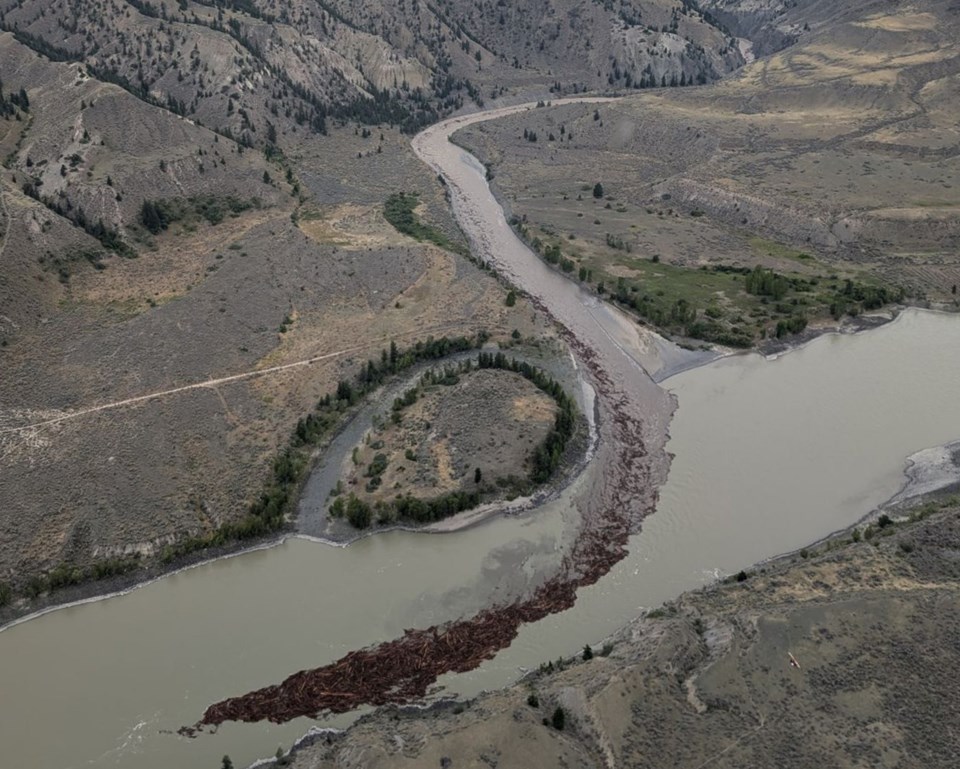WILLIAMS LAKE, sa¹úŒÊŽ«Ãœ â A salmon task force that is examining the impact of the massive Chilcotin River landslide in British Columbia says it's prepared for the "emergency enhancement" of fish stocks after the disaster.
A statement from the Fisheries Department, which is part of the task force alongside First Nations and the sa¹úŒÊŽ«Ãœ government, says monitoring has confirmed that sockeye salmon have begun to enter the river.
But more assessment is needed to determine if upstream salmon migration has been restored following the July 30 landslide.
The department says chinook and sockeye salmon reared in hatcheries run by the federal government, First Nations and the community will release stocks "as needed."
It says the situation since the landslide in sa¹úŒÊŽ«Ãœ's central Interior remains "fluid" and additional monitoring of salmon as they move into spawning grounds will be "critical" in deciding what actions need to be taken in the coming weeks.
Chief Joe Alphonse, Tsilhqot'in National Government's tribal chair, says the nation is not harvesting salmon this year and is encouraging downstream First Nations to do what they can to "reduce the stress" on this year's salmon run.
This report by The Canadian Press was first published Aug. 29, 2024.
The Canadian Press



